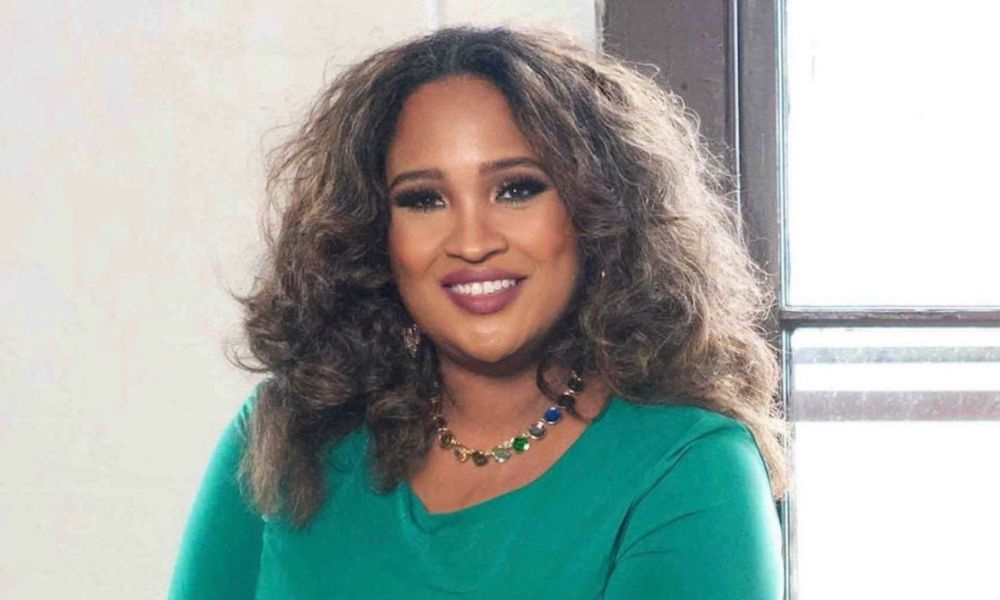
'Other than my career, I felt like I didn't have anything else to offer this world'

In March 2020, Natasha Bowman was at the top of her game.
“The Workplace Doctor” had written a best-selling book, conducted a TED Talk and was about to travel to Indonesia to be honored as one of the World’s Top 30 Management Professionals by Global Gurus. Additionally, the founder of New York City-based talent management consultancy Performance ReNEW was planning to host her own conference for later in the year.
And this is when that familiar record scratch happens: COVID-19.
“Other than my career, I felt like I didn’t have anything else to offer this world,” Bowman told HRD. A veteran of the HR industry, she’s worked for Walmart, Northwell Health and former promotional products company Standard Register. She’s also taught HR courses at Georgetown University, Fordham University and other schools.
Like many others during the height of the pandemic, she fell into a deep depression. On January 25, 2021, she attempted suicide. As a result, she was hospitalized and diagnosed with bipolar disorder. After her discharge, she says she was ashamed and became reclusive. A vibrant presence on LinkedIn with more than 80,000 followers, she went silent on the social media platform.
“As a Black woman who runs my own business, I’ve always felt I have to work harder and be more credible than some of my peers outside my demographic,” Bowman says. “It frightened me to add this mental illness as part of the intersectionality of some of the other dimensions of diversity I already have. I thought my clients wouldn’t see me as credible or reliable anymore.”
Read more: Deaf ears and a blind eye: When leadership won’t listen to HR
Bowman spent the next several months researching mental illness and how much it impacts people across the globe. She learned that many people she’s admired throughout history, from Winston Churchill to Mariah Carey, were diagnosed with mental illness. The fact that they were able to still make an impact in their communities inspired her to do the same. She finally accepted her diagnosis and decided to become an advocate.
“I realized many people were probably feeling the same way I did: alone, embarrassed, humiliated, and didn’t know how to handle it,” Bowman says.
Last fall, Bowman went public with her diagnosis in a viral LinkedIn post. In response, she received tens of thousands of messages from people sharing their own experience with mental health struggles. And contrary to her initial fears, all of her clients supported her, even inviting her to their organizations to share her story and help them foster cultures of mental wellness.
After hearing from so many people, she noticed a common theme: they wish they could be as brave as she was in sharing her struggle, but they’re afraid how it would impact their careers. Naturally, that triggered the former HR executive and renowned workplace expert.
“Currently, many organizations have limited resources available,” Bowman says. “Oftentimes, people say ‘call the EAP,’ but the EAP is still limited in what it can do. For example, it can only give you a certain amount of counseling sessions before you’re on your own to find additional counselors, which there are currently a shortage of, especially those that take your insurance. Even if they do, there’s a long wait time.”
Thus, she has launched the Bowman Foundation for Workplace Equity and Mental Illness, which provides research, awareness and training for mental wellness and psychological safety in the workplace. The nonprofit’s goal is to not only create company cultures in which employees can be open and vulnerable about their mental health struggles, but also equip organizations and leaders with free mental health resources and support.
Although employees are becoming more open about their mental illness, Bowman says, many are still reluctant to share their struggles with employers.
“They’re simply afraid of the stigma and retaliation around mental illness,” Bowman says. “Some have shared with me that they were fired or nitpicked after speaking up, and that there was a sense they weren’t able to perform to the same expectations that they had previous to their disclosure. There’s still a lack of trust.”
In order to destigmatize discussing mental health in the workplace, company leaders have to initiative the conversation – not just during Mental Health Awareness Month, but all year long.
“The more we see people taking a break, the more we normalize taking a step back to tend to your mental health,” Bowman says. “Then, let’s normalize communicating why you went off the grid, perhaps for burnout, stress, anxiety, etc. ‘I needed a breather, and this is what it did for me.’ We have to talk about it just like we would for visible, physical conditions. The more we share, the more empathy there will be.”
The foundation’s first fundraising event, The Global Impact Awards and Gala, takes place in Jersey City on October 15. Bowman says the event will celebrate and recognize people making an impact in their workplace, whether through mental health or through strides toward fair, just and equitable workplaces.
For more information on the foundation, visit thebowmanfoundation.org. To attend the gala, visit 2022globalimpactawards.com.